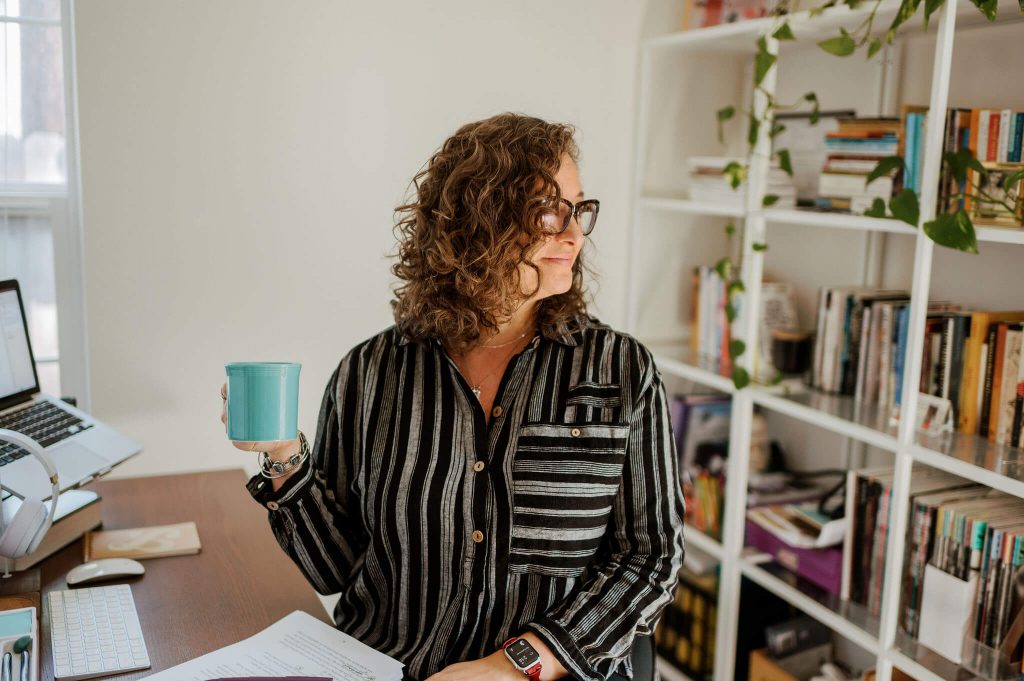I just finished reading the book We Should All Be Millionaires by Rachel Rodgers. Now before you get all the-problem-with-millionaires attitude on me, let me just say that the thesis of the book is that more women, and specifically women of color, should be millionaires, because money equals power and when women have power they do good things with it—like help as many people as they can.
Of course that is the nut-shell summary, and it’s much more complex and research-supported than that, so the point is: if the title gets your hackles up a little bit, then read it before you knock it.
Okay, now that that’s out of the way, the focus of the book, then, is of course to help women learn how they can make more money and one of the chapters is all about having a “million dollar vision.”
This chapter was ON POINT for me because, although the context is making money, the theory really can be applied very broadly and having a VISION is one of the most essential components of the framework that I created for my coaching and editing program, Nonfiction Bootcamp.
One of the stories that Rachel tells in this chapter is about how she started getting regular haircuts, when her usual M.O. had been to get her hair done once every two years or so. And as soon as she started getting her hair done regularly, she started feeling better, and because she was feeling better, she was more motivated to do money-making activities like follow up with potential clients.
“How you feel makes you money,” she says.
Rachel also says that your vision should be something that you’ll have to stretch yourself to make happen. Why? Because it’s exciting. Because we start to dream and imagine and engage in our creative thinking about how to turn the vision into reality. It gets us thinking about what we are truly capable of.
In the chapter, Rachel cites a study of senior citizens on a retreat where everything is set up to look like it is 1959, and by the end of their time the participants have demonstrated marked improvement in posture, weight gain, memory, vision, and hearing. All because they began acting the age they were in 1959.
Rachel writes:
The point? Your thoughts about what you are capable of can hold back your capabilities. When you set a big goal, you jolt yourself out of your self-imposed limitations and become more mindful. Mindfulness requires you to be present and gives you a fresh, positive perspective on the world. You are back to being a bright-eyed child who is not afraid to share her big dreams out loud and fully believe in their possibility. You’re not worried about the future, you’re excited about it.
Rachel Rodgers, We Should All Be Millionaires
So whether you want to be a millionaire or a published author, the vision you have of yourself and your future life plays a HUGE role in helping you realize that dream. First things first: you have to create your vision. I can’t tell you how often I say this is the first thing we do in Nonfiction Bootcamp and people are like, oh, wow, I never thought of creating a vision for myself, let alone for my creative life.
How are your thoughts holding you back from your capabilities and how can you make yourself FEEL like an author so that you start to BEHAVE like an author? If you are working on a book, do you ever imagine yourself having a complete manuscript a year from now? Or do you only ever see yourself continuing to work on it? Because if it’s the latter, then guess what? That will be your reality—indefinitely.
Once you have your vision, Rachel says that “you must begin to Be Her Now.”
Rachel started getting her hair done regularly so that she could feel like a Million Dollar Badass (her words, not mine)—what can you do now to start feeling like a Published Author Badass (or any other type of creative badass that you want to be)?
Rachel writes:
Imagine how the woman whose dreams are fully realized and who has accomplished everything she wants to accomplish approaches her work, her relationships, her time, and her self-care. How does she treat herself and how does she treat others? Ask yourself authentically: Who is she?
Like I said, this stuff is so essential that it can be applied beyond the context of making more money. These questions are not just about what you want to accomplish in life. They are about WHO YOU WANT TO BE, and—guess what?—if you want to be an author, then you will start behaving like one.
Now let me be clear: this is not about fake it ‘til you make it. This is about being intentional with how you envision yourself and your future, and then being intentional with the actions that you take to get there.
But it all starts with that vision and getting regular haircuts. What’s your author-version of getting regular haircuts?
Share in the comments below!

